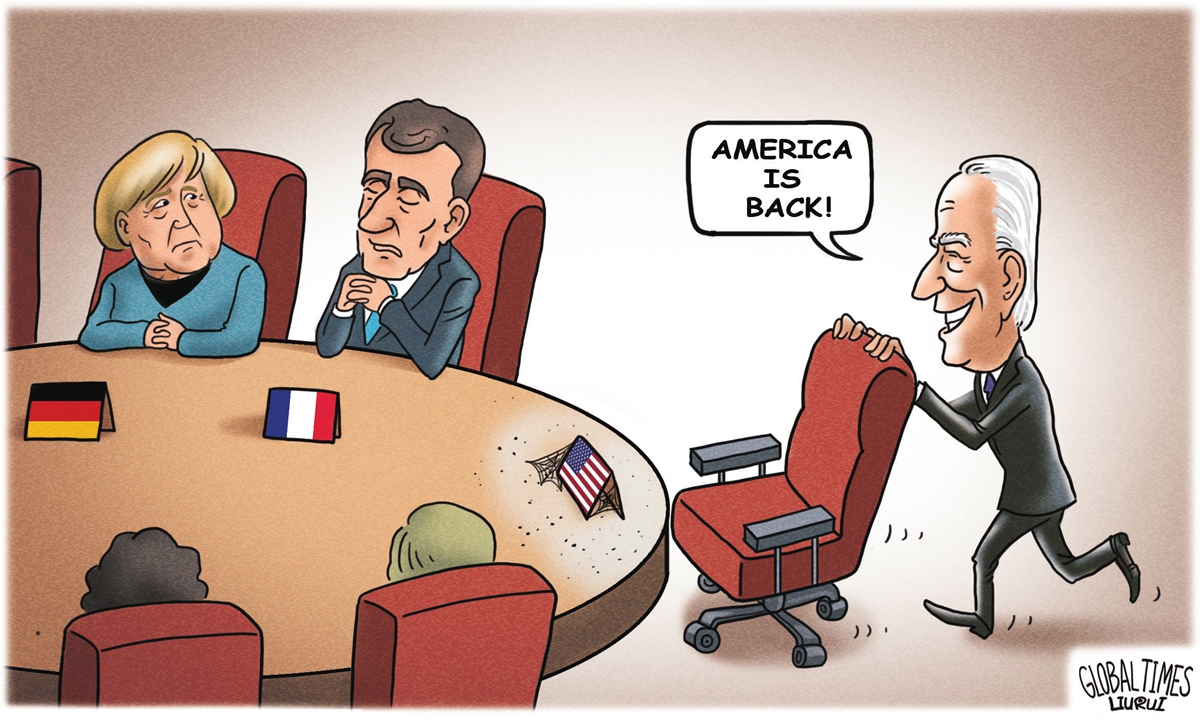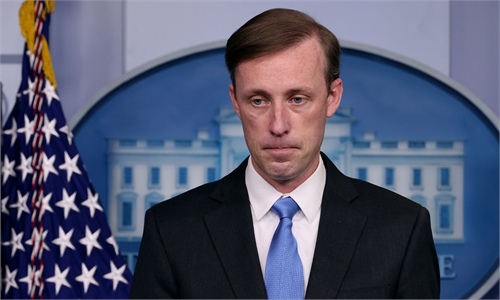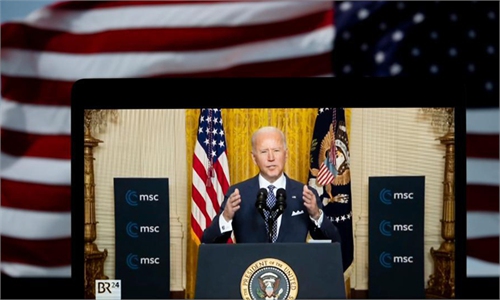When US can’t beat China, it should seek common ground for a brighter future: Global Times editorial

Illustration: Liu Rui
Friday's G7 summit and Munich Security Conference were seen as US President Joe Biden's debut on the international stage, and one of his brightest slogans was "America is back." Bringing US allies together to meet the "challenges posed by China" has been a feature of the new US administration since it took office, but the message from the two Friday meetings suggests that closer US cooperation with its allies is bound to result in mutual influence and compromise, rather than a unilateral hijacking of its allies by the US over their China policies.In addition to the "challenges posed by China," arguments against a "new cold war" and the need to "work with China" in some areas were noted at both meetings, including from Biden himself. When speaking to the Europeans, the new US president is clearly more balanced than when he speaks only to the US media.
However, there are some extreme political forces in the US that are trying to incite the rivalry between the US and China, which will cast a long-lasting shadow over China-US relations and international relations as a whole. Republican Senator Tom Cotton recently issued an arrogant report calling for a "targeted decoupling" from China. He said in a speech detailing his report at a virtual Reagan Institute event on Thursday that the US needs to "beat this evil empire" and "consign the Chinese Communists to the ash heap of history." He then called the US-China fight a "protracted twilight struggle that will determine the fate of the world."
Cotton, who stood by Donald Trump in his presidency, is a Republican whose rhetoric to more than 90 million members of the Communist Party of China is tinged with fascist racism and incitement against humanity. In a sign of how popular the hysteria is in the US today, the extremist politician is widely anticipated to be eyeing a run for president in 2024.
The root cause of why the US can do nothing to China, and why the new US government is vacillating between cooperating with its allies to contain China and working with China lies in the fact that a decisive break with China and a full-blown confrontation would be too painful for the US. Washington has always wanted to find a comfortable way to make a clear break with China. However, there is accumulating evidence indicating that this is just wishful thinking.
Taking a look at how many German cars are on the streets in China and how many French fashion products are used by Chinese women, one will further understand how unrealistic it is for European countries to give up their huge interests in the Chinese market. We know Washington does not like China very much, but China is a growing provider of immeasurable interests. It is fine to admire, envy or even hate China's development, but if you want to become an enemy of China, you must be prepared to sacrifice a great deal for your national interests.
We do not know whether Cotton's evil plan would have any chance to become true and whether a more extreme US government would gain power. But we know as long as China continues its development momentum and leaves the US in its wake, no matter how malicious Washington is, China can still hold the initiative to take hold of the situation to a great extent and the US will be propelled to stop whenever it launches fierce attacks against China.
Since Trump waged the trade war against China, China has been grappling with a turbulent strategic environment. But during all these years, China's internal logic has become clearer - China's development cannot be stopped, and the strength released from its development has smashed US attacks, including those egotistical plans, and made hysterical US politicians feel more and more desperate.
The US malice toward China still exists, but the rhythm of attacking China is slowing down. That's because the US faces multiple obstructions from reality - China-US decoupling will bring no less misery to the US than to China, and Europe, Japan and South Korea are not willing to foot the bill for US' unrealistic strategic ambitions. It is hoped the new US government can truly return to realism, draw a fine line with the previous administration's arrogant goal of bringing China down, and work with China despite divergences to seek new major power diplomacy.



